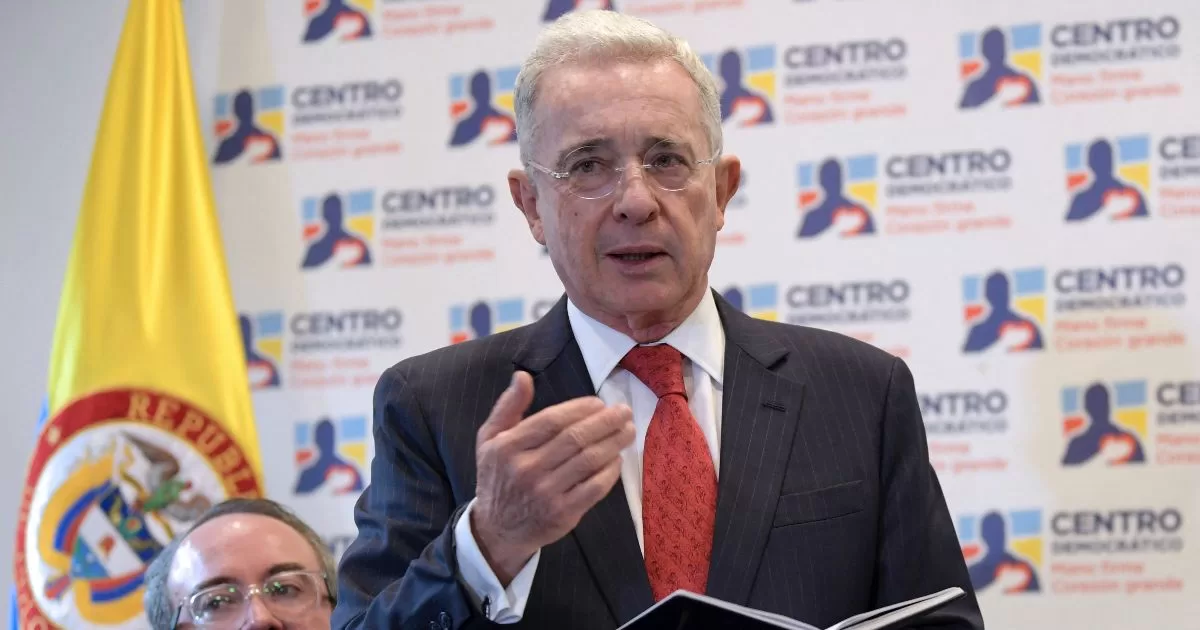BOGOTA. Álvaro Uribe Vélez, former president of Colombia, is blunt in his criticism of the labor reform project presented by President Gustavo Petro, and assures that the legal text “leads us to Venezuela, Argentina and Cuba”, countries with high levels of unemployment and job insecurity.
The former president made the criticism through his account on the social network X, formerly Twitter, where he warns that “With the Labor Reform every job will become a lawsuit.” He adds that the initiative “is inapplicable and will generate unemployment and poverty.”
Uribe recalls that during his government measures such as increasing the minimum wage and reducing the working day were implemented, which, according to him, have benefited Colombian workers without the need for labor reform.
Uribe especially criticizes the points of the reform that seek to strengthen unions and that will significantly increase costs for companies, which could generate a decrease in job creation and investment. In addition to weakening the private sector, which could negatively affect economic growth.
“Why do they want to annul the employer-worker relationship through unionism?” he asks. “Why do they want to eliminate the union contract that generates fraternity and success for the company and the worker?”
The countries mentioned by Uribe in his post, Venezuela, Argentina and Cuba, have implemented labor reforms that, he said, have resulted in high levels of unemployment, informality and job insecurity.
Labor Reform Sunday surcharge
Regarding the Sunday surcharge, Uribe points out that increasing costs affects jobs and reduces service hours to the public, and also questions night work from 9:00 at night.
Currently, people who work on Sundays must receive 175% of their salary for that day; That is, 75% additional to what they receive for a normal day. However, the labor reform proposed by the Petro government suggests that payment for Sundays be 200%. And it sets the nightly surcharges starting at 7:00 and not at 10:00 at night, as had been established during the Uribe government.
Uribe maintained that in his government he proposed “the reduction of the work day that is advancing in its application and brings benefits for the worker and greater efforts for the employer. And overtime, which has not been eliminated, will be counted from 42 hours per week, not 48 hours.”
The former president believes that the Colombian Congress should reject the labor reform proposed by the Petro government. “This reform is an attack against employment and the Colombian economy,” he says.
Criticism from business sectors, analysts and politicians
Uribe’s criticism of Petro’s labor reform joins that of other business and social sectors. The reform is described as “excessively rigid” and “counterproductive” by some analysts, who fear that it could have a negative impact on job creation and the country’s competitiveness.
Business associations such as the National Federation of Merchants (Fenalco) estimate that the reform will increase labor costs and affect the competitiveness of companies. While the National Association of Businessmen of Colombia (Andi), warns that it could generate unemployment and discourage investment. Likewise, the Colombian Confederation of Chambers of Commerce (Confecámaras) criticizes the rigidity of the reform and its impact on labor formalization.
The labor confederations also spoke out on the legal text, such as the General Confederation of Labor (CGT), which although they support some points of the reform, considers that the protection of workers’ rights that it offers is not sufficient and the Unitary Central of Workers (CUT): criticizes the lack of coordination with the social sectors and the absence of measures to combat labor informality.
Some economic analysts say they are concerned about the impact the reform could have on economic growth and job creation. Others consider that the reform is necessary to improve working conditions in Colombia, but that it must be implemented gradually and with the support of all sectors.
Political parties including Uribe’s Democratic Center are critical of the legal text, as are the Conservative Party and Cambio Radical.
Intense debate is expected on Petro’s labor reform
The Petro government, for its part, defends labor reform as a necessary measure to improve the conditions of Colombian workers. The Minister of Labor, Ángel Custodio Cabrera, affirms that the reform “seeks to dignify work and protect the rights of workers.”
The debate on labor reform in Colombia promises to be intense. Congress plans to begin discussion of the project in the coming weeks.
(email protected)
Source: Account X of former president Alvaro Uribe, Infobae, El País, AFP


